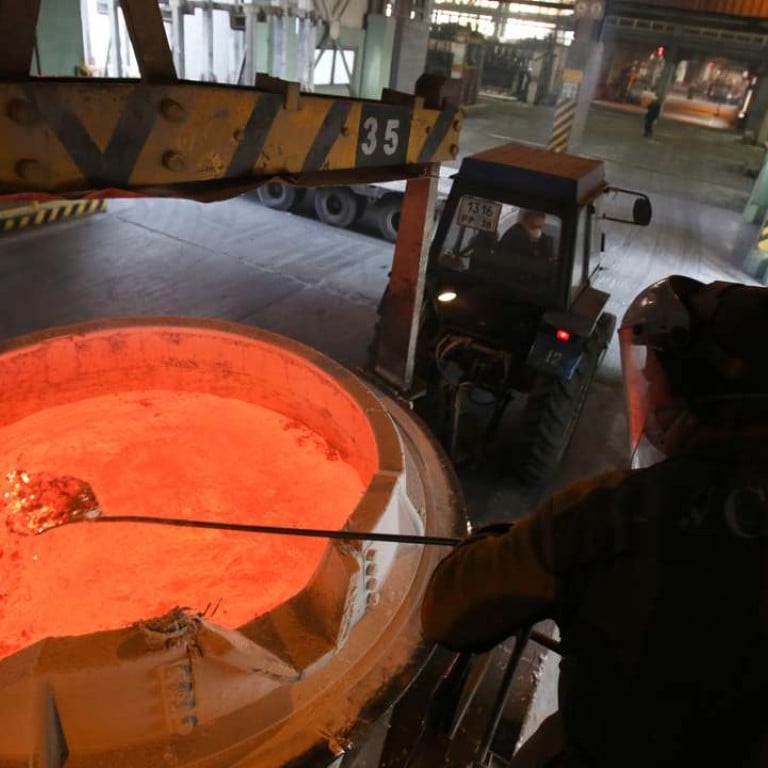
Beijing should let foreign firms list, says Kazakhstan metals firm seeking Chinese ‘New Silk Road’ money
Kazakhstan government-backed Eurasian Resources Group, which is seeking Chinese finance for four metals projects involving total investment of US$6 billion, has called on Beijing to open up China’s stock markets for foreign firms to raise funds.
The company, the world’s largest producer of ferrochrome – an intermediate material used to give stainless steel its anti-corrosion properties – is in talks with Chinese firms on four projects.
Several preliminary agreements were signed in the past two years for potential Chinese state-backed firms to participate in the projects, whose signing was witnessed by state leaders of China and the central Asian nation as part of China’s “New Silk Road initiatives”, according to Eurasian chief executive Benedikt Sobotka.
“There is a saying in our nation that landlocked Kazakhstan has no need for an ocean since China was the ocean for the nation,” he told reporters on the sidelines of the Boao forum in Hainan province. “The same can be said of our company.”
Luxembourg-based Eurasian was previously listed on the London stock exchange, until it was privatised in late 2013 by a consortium led by the Kazakhstan government that now owns a 40 per cent stake.
There is a saying in our nation that landlocked Kazakhstan has no need for an ocean since China was the ocean for the nation
Sobotka said the company would be interested in listing on mainland China’s stock markets to help raise funds for its projects, but current regulations made it “almost impossible” to do so.
“Now the focus of the markets are on Chinese companies, which means foreign firms cannot position themselves to Chinese investors, who are missing out on some very good investment opportunities,” he said. “Mining projects are good investments as they provide good long term returns.
“China [should] open up its stock markets from a demographic perspective, since its [ageing population] needs to invest in the equity market to finance their future pension income needs.”
Eurasian Resources has yet to consider Hong Kong as a potential listing venue, and will wait until its projects are more developed before doing so, he said.
The company has production assets and development projects for aluminium, iron ore, manganese, platinum, cobalt and chromium in 14 nations, with over 80,000 staff globally. Some 70 per cent of its sales are made to Asia.
In September 2015 it inked an agreement with an engineering and construction unit of China Nonferrous Metals Industry’s Group, Export-Import Bank of China, Industrial and Commercial Bank of China and China Export & Credit Insurance Corp to complete and fund a US$800 million copper and cobalt project in the Democratic Republic of Congo in Central Africa.
When the project is completed next year, Eurasian Resources will be poised to become the world’s largest independent supplier of cobalt to China with 20,000 tonnes of annual output, enough to make batteries for 500,000 electric vehicles, Sobotka said.
China accounts for around 40 per cent of world’s cobalt demand but has little domestic production. It also takes up half the world’s steel consumption and relies on imports for most of its iron ore needs.
In Kazakhstan, Eurasian Resources is seeking Chinese funding to double its 300,000 tonne-a-year annual aluminium smelting plant and expand a power plant, as well as finance a chromium and iron project.
Together, the projects require just under US$3 billion of investment.
In Brazil, the company is seeking Chinese financial support of up to US$2.5 billion for a 20 million tonne-a-year iron ore mining project with related port and railway infrastructure.

